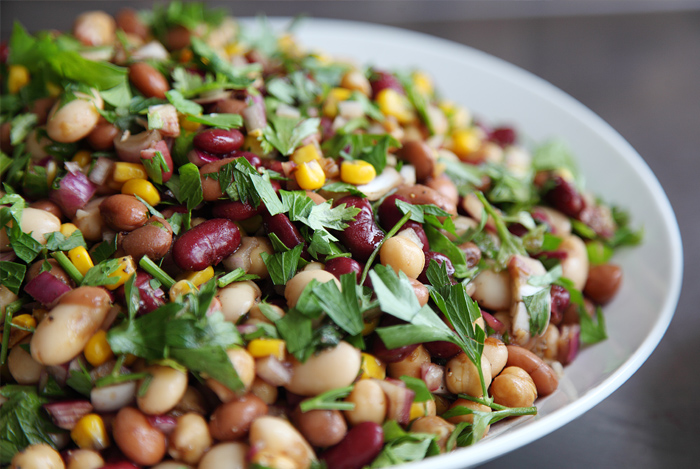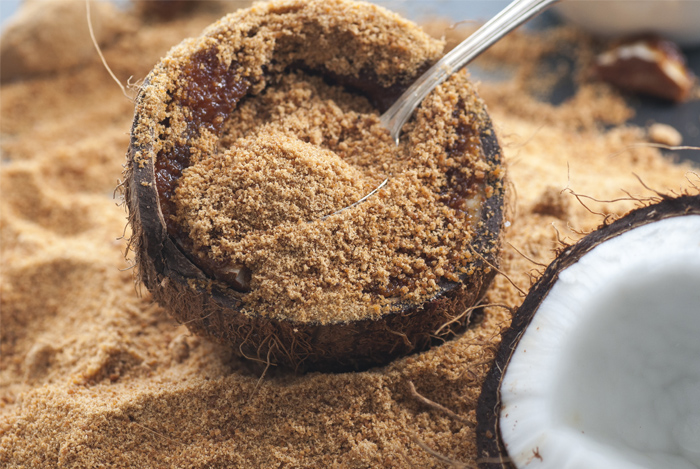Cancer is a hot topic in the health food world and with good reason. Cancer affects 1,600,000 people and their family and friends in the United States alone as of the latest 2016 reports.
What’s worse is that despite attempts to make our country healthier, health officials and government establishments are still confused as to why cancer rates continue to proliferate to increasingly high amounts each year.
What Exactly Is Cancer?

The truth is, we all have cancerous cells in our body; they’re just dormant and don’t normally lead to disease in most healthy individuals.
The problem with people who “get cancer” is that those dormant cancerous cells are activated and turned on; they then begin to multiply and cause abnormal cell growth. This quickly spirals into depletion of nutrients as the cancerous cells spread and rob the body of nutrients it needs for health, especially the immune system.
Considering those facts, what we need to focus on is not just treatment of cancer, but how to stop abnormal cell growth.
There is no magic diet that can help you prevent cancer, but there are significant dietary and lifestyle habits you can start now to reduce your chances or prevent your chances of getting cancer.
With this in mind, here are five science-backed ways to prevent cancer that everyone can take advantage of now. Even people who get cancer can use the following tips to send their condition into a remission status along with treatment aids that are right for them.
5 Science-Backed Ways to Prevent Cancer
1. Don’t Smoke or Quit Now

Tobacco intake is one of the most predominant causes of cancer.
The American Cancer Society and the Mayo Clinic report that smoking has been linked to breast, lung, mouth, pancreas, bladder, throat, larynx, cervix and kidney cancer.
Whether you smoke or chew tobacco doesn’t matter; it all increases your risks for developing cancer because cancer feeds off toxins and carcinogens which tobacco essentially is.
If you live with someone or are around someone who smokes, you should also be very carefully. Second-hand smoking has also been associated with lung cancer along with other lung problems over time.
This one step alone is one of the most effective and important steps you can take to not only protect yourself from cancer but also a shorter life in general. If you need help quitting, see a doctor for treatments that may work best for you.
2. Get Off the Couch and Get Moving Daily

Daily exercise is important for preventing cancer and other types of disease. Obesity increases your risk of cancer, heart disease, Type 2 diabetes, and a shorter lifespan in general.
Even just 30 minutes of exercise per day can help you reduce the risk of breast, prostate, lung, colon, and kidney cancer. It will also help you control your weight, and improve your blood pressure levels, digestion, and mood.
The more exercise you can do, the better, and any type of exercise you enjoy counts. Walking is a great exercise to prevent disease, but if you enjoy running, yoga, or even jump rope, do those too! Just be sure you log at least 150 minutes of exercise per week, with a minimum of 5 sessions per week.
Inactivity causes the cells in the body to act abnormally and increases your blood pressure, blood sugar levels, and decreases blood flow to vital organs, including the brain and heart.
If you’re looking for foods to improve your workouts, be sure to give these a try!
3. Eat More Plants and Less Meat

You don’t have to go vegan to eat less meat, and it’s in your best interest to reduce the meat in your diet—or better yet eliminate it—if you want to prevent cancer.
Red meat and other meats (except for fish) have been strongly associated with the development of not just cancer, but also obesity, heart disease, and high blood pressure levels. Decreasing your intake of cholesterol from animal-based fats and eating more plant-based fats is also a way to improve your intake of healthy fats and decrease your risk of heart disease and inflammation.
Plant-based proteins have also been associated with improving the pH of the blood which has been thought to decrease the risk of inflammation that can proliferate the multiplication of cancer cell growth.
Here is a list of foods that don’t contain meat you can eat to start eating more plants and less meat:
- All leafy greens
- Green vegetables
- All fruit
- Lentils
- Black beans
- Green peas
- Split peas
- Kidney beans
- White beans
- Wild rice
- Black rice
- Brown rice
- Chickpeas (garbanzo beans) and hummus
- Amaranth
- Quinoa
- Millet
- Oatmeal
- Peanut butter
- Almond butter
- Cashews
- Almonds
- Walnuts
- Flax seeds
- Chia seeds
- Hemp seeds
- Pumpkin seeds
- Brazil nuts (also a good source of selenium, an important nutrient for cancer prevention)
- Nutritional yeast instead of cheese (which has a cheesy flavor)
- Coconut products (butter, oil, milk, and unsweetened flakes)
- Non-dairy milk (almond, rice, cashew, hemp, flax, coconut, and others)
- Non-dairy yogurt
- Tempeh or tofu
- Plant-based protein powders
If you can’t quite give up animal products yet, be cautious about the ones you do eat. Switch to a more Mediterranean style diet and consider eating fresh, wild fish as your only source of animal protein if you’re not ready to make the full switch yet.
Plant-based diets can help you lose weight and prevent disease. Even just basing 80% of your diet from plants and less processed foods and meat can have a significant benefit on your health and prevention of disease.
While you’re at it, buy as much organic produce as you can since pesticides found on conventional produce have also been linked to cancer and other types of health problems.
4. Kick the Booze Habit ASAP

You probably know the booze habit isn’t a healthy one to partake in, but even just the occasional drink can increase your risk of getting cancer.
Alcohol is a toxin and acts as a carcinogen to the liver, your prime detox (and fat loss) organ. Alcohol intake has been associated with over 10 different types of cancer including head, neck, pancreas, breast, prostate, lung, colon, ovary, uterus, bladder, liver and esophageal cancer.
If you’re wondering about wine, yes, it still counts. Although occasional wine consumption has been linked to benefits, the risks of alcohol consumption seem to outweigh the overall benefits. Although the grape that wines are made from are great for your health!
Booze-Free Tip:
If you have a hard time getting off alcohol, why not consider kombucha? Kombucha is a fermented product made similar to beer, but it’s great for your immunity and improving health since it’s high in probiotics and good for gut health.
Many people who drink or are hooked on soda or beer turn to kombucha as a healthy alternative. You can find kombucha at health food stores or even super center stores like Target and Walmart.
Remember, taking care of your liver can help you live longer and prevent cancer and weight gain. Here are some foods to eat to help take care of your liver and detox on the daily!
5. Say No to Sugar and Yes to Natural Sweetness

Our sugar consumption worldwide is still incredibly high despite worldwide evidence showing it doesn’t contribute any nutrition and that it actually promotes disease.
Sugar consumption has also been directly linked to cancer because it increases your risk for heart disease, obesity, and Type 2 diabetes which increases your risk for cancer indirectly.
You may have seen some people say that sugar feeds cancer cells, but The American Cancer Society reports that has not yet been proven true. Still, sugar is not a health food and can increase your risk of disease making it something you want to eliminate in your diet.
Learn to enjoy nature’s sweetness instead of refined sugar. Choose fruit as your main source of sugar, and bake with puréed dates, unsweetened applesauce, mashed bananas, raisins, apples, pears, figs, or fresh fruit instead of refined or added sugars.
Watch your intake of natural sweeteners that often receive a health halo too. These sweeteners include coconut sugar, agave nectar, maple syrup, molasses, and yes, even honey. Although these may be more nutritious than refined white sugar, they still increase your blood sugar levels to some degree and contribute excess calories that don’t fill you up.
You’ll also want to eliminate artificial sweeteners which are just as bad for your health as plain old sugar. Many artificial sweeteners have also directly been linked to cancer and blood sugar problems. Choose pure, unadulterated stevia which is not artificial and can be a healthy substitute for those weaning themselves off sugar.
Need help quitting sugar?
Here’s a 30-day plan to help you quit sugar for good!
What to Eat To Reduce Your Risk of Cancer:

A diet full of fruits, vegetables, greens, whole (not refined) grains like oatmeal, legumes (beans, peas, lentils), healthy fats (almonds, avocados, wild fish, chia, flax, and antioxidant-rich foods such as those listed above can all help you improve your intake of healthy foods and decrease your risk of disease, including cancer.
It’s also advised to watch your overall intake of saturated fats from all sources.
You may also want to increase your intake of green tea which has been shown to reduce cancer and be sure to get at least 9 servings of fruits and vegetables per day.
Don’t forget to get enough fiber as well. Fiber only comes from plants and it’s important for optimal health. Fiber helps your body eliminate toxins and carcinogens that can protect you from disease even further.Here are 17 high fiber foods to work into your day if you need some ideas.
If you need some help with meal plans, feel free to reach out. I can help you find a meal plan that decreases your risk of disease and helps you take the weight off too!
The post Cancer-Proof: 5 Science-Backed Ways to Prevent Cancer appeared first on Nutrition Secrets.
http://www.nutritionsecrets.com/cancer-proof-5-science-backed-ways-to-prevent-cancer/
No comments:
Post a Comment